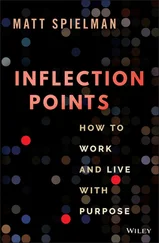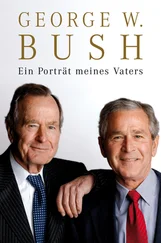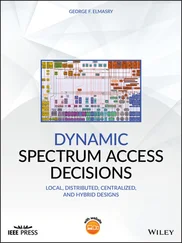I decided that the long-run benefits of keeping the pressure on Syria and Iran outweighed the short-run gains of striking further blows against Hezbollah. I sent Condi to the UN, where she negotiated Resolution 1701, which called for an immediate end to the violence, the disarmament of Hezbollah and other militias in Lebanon, an embargo on weapons shipments, and the deployment of a robust international security force to southern Lebanon. The Lebanese government, Hezbollah, and Israel all accepted the resolution. The ceasefire took effect on the morning of August 14.
Israel’s war against Hezbollah in Lebanon was another defining moment in the ideological struggle. While it remains fragile and still faces pressure from Syria, Lebanon’s young democracy emerged stronger for having endured the test. The result for Israel was mixed. Its military campaign weakened Hezbollah and helped secure its border. At the same time, the Israelis’ shaky military performance cost them international credibility.
As the instigators of the conflict, Hezbollah—along with Syria and Iran—bore responsibility for the bloodshed. The Lebanese people knew it. In the most telling analysis of the war, Hezbollah chief Hassan Nasrallah apologized to the Lebanese people two weeks after the ceasefire. “Had we known that the capture of the soldiers would have led to this,” he said, “we would definitely not have done it.”

When Condi took her first trip to Europe as secretary of state in early 2005, she told me she expected our disagreements over Iraq to be the main issue. A week later, she reported back with a surprising message from the allies she’d met. “They’re not talking about Iraq,” she said. “They’re all worried about Iran.”
By the time I took office, the theocratic regime in Iran had presented a challenge to American presidents for more than twenty years. Governed by radical clerics who seized power in the 1979 revolution, Iran was one of the world’s leading state sponsors of terror. At the same time, Iran was a relatively modern society with a budding freedom movement.
In August 2002, an Iranian opposition group came forward with evidence that the regime was building a covert uranium-enrichment facility in Natanz, along with a secret heavy water production plant in Arak—two telltale signs of a nuclear weapons program. The Iranians acknowledged the enrichment but claimed it was for electricity production only. If that was true, why was the regime hiding it? And why did Iran need to enrich uranium when it didn’t have an operable nuclear power plant? All of a sudden, there weren’t so many complaints about including Iran in the axis of evil.
In October 2003, seven months after we removed Saddam Hussein from power, Iran pledged to suspend all uranium enrichment and reprocessing. In return, the United Kingdom, Germany, and France agreed to provide financial and diplomatic benefits, such as technology and trade cooperation. The Europeans had done their part, and we had done ours. The agreement was a positive step toward our ultimate goal of stopping Iranian enrichment and preventing a nuclear arms race in the Middle East.
In June 2005, everything changed. Iran held a presidential election. The process was suspicious, to say the least. The Council of Guardians, a handful of senior Islamic clerics, decided who was on the ballot. The clerics used the Basij Corps, a militia-like unit of the Iranian Revolutionary Guard Corps, to manage turnout and influence the vote. Tehran Mayor Mahmoud Ahmadinejad was declared the winner. Not surprisingly, he had strong support from the Basij.
Ahmadinejad steered Iran in an aggressive new direction. The regime became more repressive at home, more belligerent in Iraq, and more proactive in destabilizing Lebanon, the Palestinian Territories, and Afghanistan. Ahmadinejad called Israel “a stinking corpse” that should be “wiped off the map.” He dismissed the Holocaust as a “myth.” He used a United Nations speech to predict that the hidden imam would reappear to save the world. I started to worry we were dealing with more than just a dangerous leader. This guy could be nuts.
As one of his first acts, Ahmadinejad announced that Iran would resume uranium conversion. He claimed it was part of Iran’s civilian nuclear power program, but the world recognized the move as a step toward enrichment for a weapon. Vladimir Putin—with my support—offered to provide fuel enriched in Russia for Iran’s civilian reactors, once it built some, so that Iran would not need its own enrichment facilities. Ahmadinejad rejected the proposal. The Europeans also offered to support an Iranian civilian nuclear program in exchange for halting its suspect nuclear activities. Ahmadinejad rejected that, too. There was only one logical explanation: Iran was enriching uranium to use in a bomb.
I faced a major decision point. America could not allow Iran to have a nuclear weapon. The theocratic regime would be able to dominate the Middle East, blackmail the world, pass nuclear weapons technology to its terrorist proxies, or use the bomb against Israel. I thought about the problem in terms of two ticking clocks. One measured Iran’s progress toward the bomb; the other tracked the ability of the reformers to instigate change. My objective was to slow the first clock and speed the second.
I had three options to consider. Some in Washington suggested that America should negotiate directly with Iran. I believed talking to Ahmadinejad would legitimize him and his views and dispirit Iran’s freedom movement, slowing the change clock. I also doubted that America could make much progress in one-on-one talks with the regime. Bilateral negotiations with a tyrant rarely turn out well for a democracy. Because they are subjected to little accountability, totalitarian regimes face no pressure to honor their word. They are free to break agreements and then make new demands. A democracy has a choice: give in or provoke a confrontation.
The second option was multilateral diplomacy conducted with both carrots and sticks. We could join the Europeans in offering Iran a package of incentives in return for abandoning its suspect nuclear activities. If the regime refused to cooperate, the coalition would then impose tough sanctions on Iran individually and through the UN. The sanctions would make it harder for Iran to obtain technology needed for a weapon, slowing the bomb clock. They would also make it harder for Ahmadinejad to fulfill his economic promises, which would strengthen the country’s reform movement.
The final option was a military strike on Iran’s nuclear facilities. This goal would be to stop the bomb clock, at least temporarily. It was uncertain what the impact on the reform clock would be. Some thought destroying the regime’s prized project would embolden the opposition; others worried that a foreign military operation would stir up Iranian nationalism and unite the people against us. I directed the Pentagon to study what would be necessary for a strike. Military action would always be on the table, but it would be my last resort.
I discussed the options with the national security team extensively in the spring of 2006. I consulted closely with Vladimir Putin, Angela Merkel, and Tony Blair. They assured me they would support strong sanctions if Iran did not change its behavior. In May, Condi announced that we would join the Europeans in negotiating with Iran, but only if the regime verifiably suspended its enrichment. She then worked with the UN Security Council to set a deadline for Iran’s response: August 31. The summer passed, and the answer never came.
The next challenge was to develop effective sanctions. There wasn’t much America could do on our own. We had sanctioned Iran heavily for decades. I directed the Treasury Department to work with its European counterparts to make it harder for Iranian banks and businesses to move money. We also designated the Quds Force of Iran’s Revolutionary Guard Corps as a terrorist organization, which allowed us to freeze their assets. Our partners in the diplomatic coalition imposed new sanctions of their own. And we worked with the UN Security Council to pass Resolutions 1737 and 1747, which banned Iranian arms exports, froze key Iranian assets, and prohibited any country from providing Iran with nuclear weapons–related equipment.
Читать дальше












